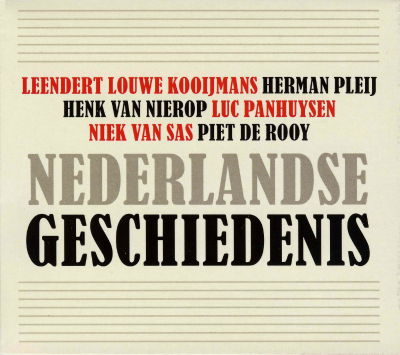
Ragnar365 Nuggets: Microsoft 365 AI-powered Workplace
Podcast door Ragnar Heil
Welcome to Ragnar365 Nuggets, Ragnar Heil's short news and personal insights about Microsoft 365 Intelligent Workplace. Focus Areas: Microsoft Teams, SharePoint, Outlook, OneDrive, Copilot, Microsoft Viva, Employee Experience, Governance, Compliance, Power Platform etc)
Tijdelijke aanbieding
3 maanden voor € 1,00
Daarna € 9,99 / maandElk moment opzegbaar.
Alle afleveringen
66 afleveringenJoin MVPs Joy Apple, Christian Buckley, me and special guest Diego Silva (Microsoft 365 Architect) as they dive deep into the reality of Microsoft Copilot adoption. What happens when the initial AI excitement fades and organizations face the hard truths about governance? This month's episode tackles the cultural, technical, and practical challenges of moving from Copilot demos to sustainable enterprise deployment. 🔥 Key Topics Covered: * Why governance matters more than ever in the AI era * The hidden costs of poor content management with Copilot * Cultural change strategies that actually work * Practical steps for sustainable AI adoption
Episode 17 of "Guardians of Microsoft 365 Governance" featured hosts MVPs Christian Buckley, Joy Apple and Ragnar Heil discussing Copilot Studio governance with guest Matthias Einig, CEO of Rencore. Agent Sprawl Crisis: Organizations are experiencing explosive growth in Copilot Studio agents - one customer already has 20,000 agents in just six months. Unlike traditional M365 Copilot's flat-rate pricing, the pay-as-you-go model creates cost control concerns when agents are shared organization-wide. Lifecycle Management Gap: Current Microsoft tools lack proper lifecycle management for agents. The new Copilot Control Center helps but doesn't scale for thousands of agents. Organizations need automated policies for unused agents, approval workflows for high-risk deployments, and chargeback models to assign costs to appropriate departments. From Data to Agents: While M365 Copilot governance focuses on cleaning underlying SharePoint/OneDrive data and permissions, Copilot Studio requires governing the agents themselves - their access scope, sharing permissions, and risk profiles throughout their lifecycle. Risk-Based Approach: Organizations are implementing policies like requiring special approval for agents shared with 100+ users, but these are often only checked at creation, not monitored ongoing. Risk assessment should consider both data sensitivity and audience size. Automated Governance: Rencore demonstrated upcoming capabilities including cost tracking per agent, usage analytics, automated cleanup of unused agents after 30 days, access reviews, and policy violations detection. The platform provides visibility into agent conversations, knowledge sources, and cross-connections between components. Cultural Shift: Unlike the COVID-era "deploy first, govern later" approach that created current data chaos, organizations are taking more measured approaches to AI adoption, recognizing that proper governance enables rather than hinders innovation. The episode emphasized that successful Copilot governance requires treating it as an ongoing process, not a one-time "readiness" checklist, with automation becoming crucial as both governance tools and AI agents operate autonomously.
Summary of Guardians of M365 Governance Ep.14 When data sprawl, out-of-date documents, and misaligned permissions persist unchecked, any AI output (such as that from co-pilot) can be compromised or inaccurate. The overarching message is that organizations need to establish clear policies and processes to keep information fresh, secure, and properly categorized, thereby laying the groundwork for successful AI deployment. For Episode 14 of the Guardians of M365 Governance monthly webcast, Joy Apple (@joyofsharepoint [https://x.com/joyofsharepoint]), Ragnar Heil (@ragnarh [https://x.com/ragnarh]) and I welcomed our guest and fellow MVP, Stacy Deere (@sldeere [https://x.com/sldeere]), the CEO of Focal Point Solutions, to discuss “How SharePoint is Making Governance Easier & More Secure” and many of the announcements made in the recent SharePoint event [https://youtu.be/JrUMwnsRSaU?si=fgqIHvSUHUFgd0yb] from Microsoft.
This episode explores how AI can improve oversight and streamline compliance processes in governance.Join this month's Guardians of M365 Governance as Ragnar Heil Joy Apple and Christian Buckley welcome dual Security and M365 MVP Alistair Pugin.Highlights- Introduction to the role of AI in enhancing government oversight.- Discussion on AI’s potential to simplify compliance tasks.- Real-world examples of AI applications in governance.- Expert opinions on the future of AI in regulatory frameworks.- Strategies for integrating AI solutions effectively in public sectors.
or Episode 12 of the Guardians of M365 Governance monthly webcast, Joy Apple (@JoyofSharePoint [https://x.com/joyofsharepoint]), Ragnar Heil (@ragnarh [https://x.com/ragnarh]) and I welcomed our guest, Sharon Weaver (@sharoneweaver [https://x.com/sharoneweaver]), a fellow MVP and RD and the CEO of Smarter Consulting [https://smarter-consulting.com/], to discuss “Deep Dive Into the Microsoft 365 Maturity Model.” If you’ve been following the show, you’ll probably remember that Sharon was scheduled to be on live broadcast in August but had a last-minute customer priority, so we invited her back to continue the discussion and share her work as part of the core team helping to expand the Microsoft 365 Maturity Model [https://learn.microsoft.com/en-us/microsoft-365/community/index-mm4m365]. Our discussion centered on the importance of governance within the Microsoft 365 ecosystem, emphasizing its role in managing content, permissions, and access while fostering a culture of effective communication and training. The M365 Maturity Model can be a valuable framework for assessing and improving governance practices. This model provides a structured approach to evaluate organizational maturity across various competencies, such as communication, security, compliance, and adoption. Key insights included the significance of understanding current maturity levels, setting actionable goals, and creating a clear path for improvement through self-assessment tools and workshops. A critical focus of our conversation was the importance of communication as a competency. It was noted that communication is often the lowest-rated competency in organizations, yet it has the greatest impact on overall success. Improving communication can act as a catalyst for advancing other competencies, helping organizations navigate critical transitions, such as moving from a basic to an intermediate level of maturity. Strategies for leveling up include providing clarity about changes, offering guidance to stakeholders, and ensuring transparency in governance processes to foster trust and collaboration. We also explored the impact of AI, particularly tools like Microsoft Copilot, on governance practices. It was suggested that organizations need mature governance and communication competencies to effectively implement AI solutions. As AI adoption accelerates, there is a growing need for AI-specific governance considerations, including transparency, accountability, and ethics. In fact, we discussed the idea of creating a new “Level 600” in the maturity model to address the advanced requirements of AI governance, highlighting the evolving nature of organizational needs as technology becomes increasingly sophisticated.
Tijdelijke aanbieding
3 maanden voor € 1,00
Daarna € 9,99 / maandElk moment opzegbaar.
Exclusieve podcasts
Advertentievrij
Gratis podcasts
Luisterboeken
20 uur / maand

































